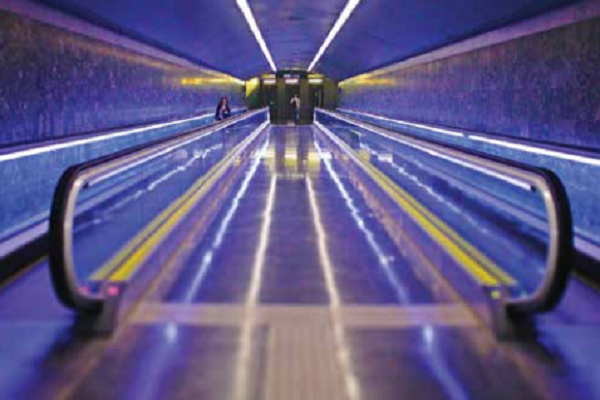The first stage of the pandemic was about ensuring the work gets done. Having come to terms with the new normal, the question of culture-building has begun to surface.
The world that was, 18 months ago, does not exist anymore. The Monday morning blues, the rush of morning office traffic, and the not so tasty office cafeteria food that you complained about are deeply missed. The new mutations and variations of COVID-19 that are apparently cropping up, make the erstwhile abnormal as the New Normal. Thanks to the digital revolution, mental proximity and social connections still persist despite the Covid-induced “social distancing”.
The workplace that we spent one-third of our weekdays on, went through a never seen, never imagined transformation. I had never imagined that I will not set foot into my office for almost 18 months after having joined my new job, and it feels so normal! There are many others who have not had a change in the way they work. The bakers, the transporters, the sanitation workers, the health care workers and many others who have been instrumental in ensuring we remain supported during the pandemic, continued to stretch and deliver despite the risks they were exposed to.
Many of us continue to be in our virtual offices, working with virtual colleagues and clients.
• Where do we go from here?
• Will we ever go back to the normal ways of working?
• Will we continue to work from home?
• Will the companies adopt hybrid ways of working?
Having spoken to many of my peers in the industry, business leaders and colleagues, I feel it is an evolving situation.
Factors that Determine the Future Ways of Working
• Nature of Industry/Workforce: There will be jobs that need physical presence in the workspace to deliver an outcome. Most jobs in manufacturing, logistics etc. essentially require physical presence and will not offer the flexibility to be performed remotely. Knowledge workers, on the other hand, will be able to work remotely. The pandemic has “forced” firms to validate their assumptions, and in many cases, the results have been pleasantly surprising. Who would have expected a bank relationship manager to operate remotely?
• Technology Adoption and Advancements: It will not be an exaggeration to say that collaboration tools have been instrumental in running the world efficiently during the pandemic. The ways of working will continue to be impacted by these advancements and we may see even better collaboration tools/applications in the future.
• Legislations/Legal framework: Many IT/ITES professionals could not formally work from home in the past due to the regulations mandating physical presence in the tax-exempt IT parks/zones. There are state/country-specific labour laws that apply depending on their work locations. It gets even more complicated with international workers because the country-specific immigration laws come into effect. Most of these will need to be interpreted appropriately, simplified, and in many cases, changed to enable future flexible working models for firms.
• The organisational vision of its culture: This will play a big part in future ways of working. Some organisations may be extremely comfortable with distributed/ remote teams while others may want to have employees meet with each other regularly. Both have their own advantages and drawbacks and may suit each organisation differently. Organisations will deploy the strategy that helps them define and build their workplace culture.
• Cost will be a key decision driver: Organisations have realised that they are able to deliver effective outcomes without getting employees to the office on a regular basis. The fear of failure in a remote working environment seems to have dissipated. This has created an opportunity for the firms to evaluate their real estate strategy. We are seeing firms give up real estate space to align better to their “future ways of work “strategy. Add to this the reduced cost for employee travel/ transport, cafeteria, stationary etc. and the advantages become even more pronounced. Optimisation of real-estate space and lower operating costs is inducing firms to adopt flexible working models.
Challenges Owing to the New Model
This new model, however, does have its challenges. In the past year, we have got used to distributed teams and remote working. We have, however, started seeing newer issues triggered by the remote work arrangements and must address them proactively:
• In a country like ours, with employees from diverse economic backgrounds, the location/cityspecific infrastructure issues, not everyone is equally enabled to work from home. Smaller homes, internet connectivity issues, power cuts etc. make it extremely challenging for employees to be productive. Firms have begun supporting them by enabling Technology infrastructure support, ergonomic workstations, allowances etc. Proactive benefits and policy formulations around this aspect will help address current challenges.
• Being constrained in homes and social isolation has led to the physical and mental well-being issues. We are seeing increased asks/requests from employees to work from the office. We need to invest more time and effort in ensuring physical and mental wellbeing of employees. Healthcare tie-ups, insurance support, mental health sessions, counselling sessions with colleagues have seen an increased focus across organisations.
• Managerial capability building has become a big need for the future ways of work to be successful. Investment in building managers who can manage teams virtually and are able to create high performing teams will lead to positive productivity and colleague engagement.
The first stage of the pandemic was about ensuring the work gets done. Having come to terms with the new normal, the question of culture-building has begun to surface. What strategies will we adopt to build it? The industry peers I talk to, acknowledge the need for “in-person” meetings to promote team bonding and building a high-class work culture.
Most firms, where the situation permits will move to a hybrid mode of working, where the staff will be splitting the work hours between office and home. Office space will primarily be used for building collaboration and culture. Effective engagement initiatives, better communication, collaboration tools, managerial capability building, and infrastructure enablement will help. They will, however, never replace the camaraderie, the relationships and collaboration that gets created on account of physical presence within the office. Thus, it is important for us to have our “back to office” strategy so that we can leverage the opportunity when it arises.
Disclaimer: The views expressed are the personal views of the author.

Does your organisation support you in maintaining work-life boundaries?
Trending
-
SBI General Insurance Launches Digital Health Campaign
-
CredR Rolls Out 'Life Happens' Leave For Its Employees
-
Meesho Announces 30-Week Gender-Neutral Parental Leave Policy
-
Microsoft Unveils Tech Resilience Curriculum To Foster An Inclusive Future
-
60% Indian Professionals Looking For Job Change Due To COVID: Survey
-
SpringPeople And Siemens Collaborate For Digital Transformation Push
-
86% Professionals Believe Hybrid Work Is Essential For Work Life Balance: Report
-
Almost 1 In Every 3 People's Personal Life Affected Due To Work Stress
-
Meesho Rolls Out Reset And Recharge Policy For Employees
-
80% Of Talent Leaders & Academics Say Pandemic Changed Skill Needs For Youth: Report
-
Hero Electric Rolls Out 'Hero Care' Program For Employees
-
Human Capital In Collaboration With ASSOCHAM Hosts Virtual Conference
-
IKEA India, Tata STRIVE Collaborate To Create Employability And Entrepreneurship Opportunities
-
SAP India, Microsoft Launch Tech Skilling Program for Young Women
-
DXC Technology, NASSCOM Collaborate For Employability Skills Program
-
Lenskart To Hire Over 2000 Employees Across India By 2022
-
Mindtree Launches Learn-and-Earn Program
-
Tata AIA Extends 'Raksha Ka Teeka' To Its Employees
-
Swadesh Behera Is The New CPO Of Titan
-
NetConnect Global Plans To Recruit 5000 Tech Professionals In India
-
Hubhopper Plans To Hire 60% Of Indian Podcasters By 2022
-
Corporate India Needs More Women In Leadership Roles: Report
-
Aon to Invest $30 Million and Create 10,000 Apprenticeships by 2030
-
Tech Mahindra Launches ‘Gift a Career’ Initiative for Upskilling of Youth
-
40% Women Prefer Flexible Working Options in Post-COVID World: Survey
-
3 out of 4 companies believe they can effectively hire employees virtually: Report
-
Vodafone , CGI and NASSCOM Foundation launch digital skills platform
-
Odisha: Bank, postal employees to deliver cash for elderly, differently-abled persons
-
Skill India launches AI-based digital platform for "Skilled Workforce"
-
Hiring activity declines 6.73% in first quarter: Survey
-
70% startups impacted by COVID-19 pandemic
-
Bajaj Allianz Life ropes in Santanu Banerjee as CHRO
-
Over 70 Percent MSMEs look at cutting jobs to sustain businesses
-
93 Per Cent employees stressed about returning to office post-lockdown
-
Johnson & Johnson India announces family benefits for same gender partners
-
Indian firms turning friendly towards working mothers
-
Welspun India names Rajendra Mehta as new CHRO
-
Wipro partners with NASSCOM to launch Future Skills platform



Human Capital is niche media organisation for HR and Corporate. Our aim is to create an outstanding user experience for all our clients, readers, employers and employees through inspiring, industry-leading content pieces in the form of case studies, analysis, expert reports, authored articles and blogs. We cover topics such as talent acquisition, learning and development, diversity and inclusion, leadership, compensation, recruitment and many more.
Subscribe Now












































Comment